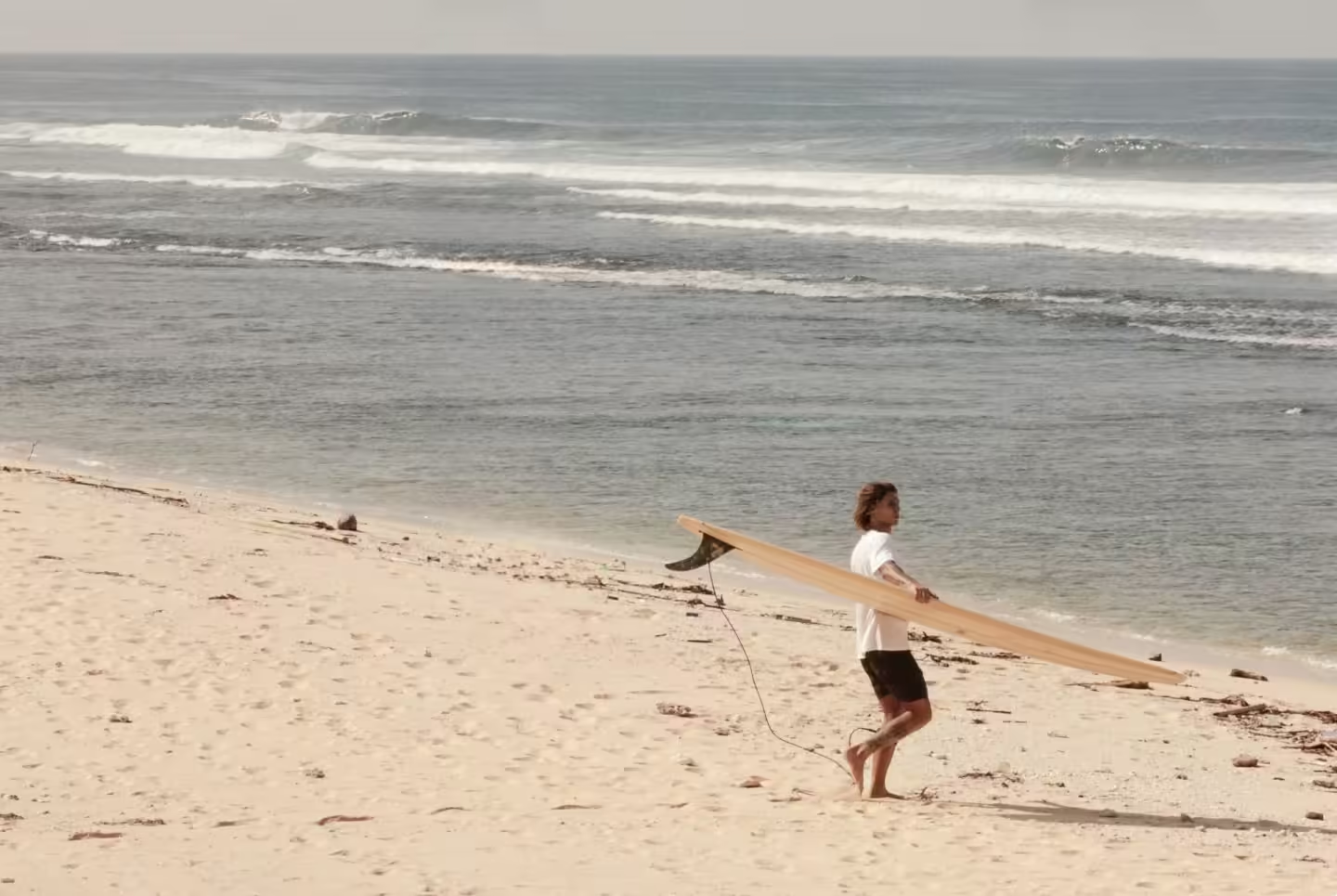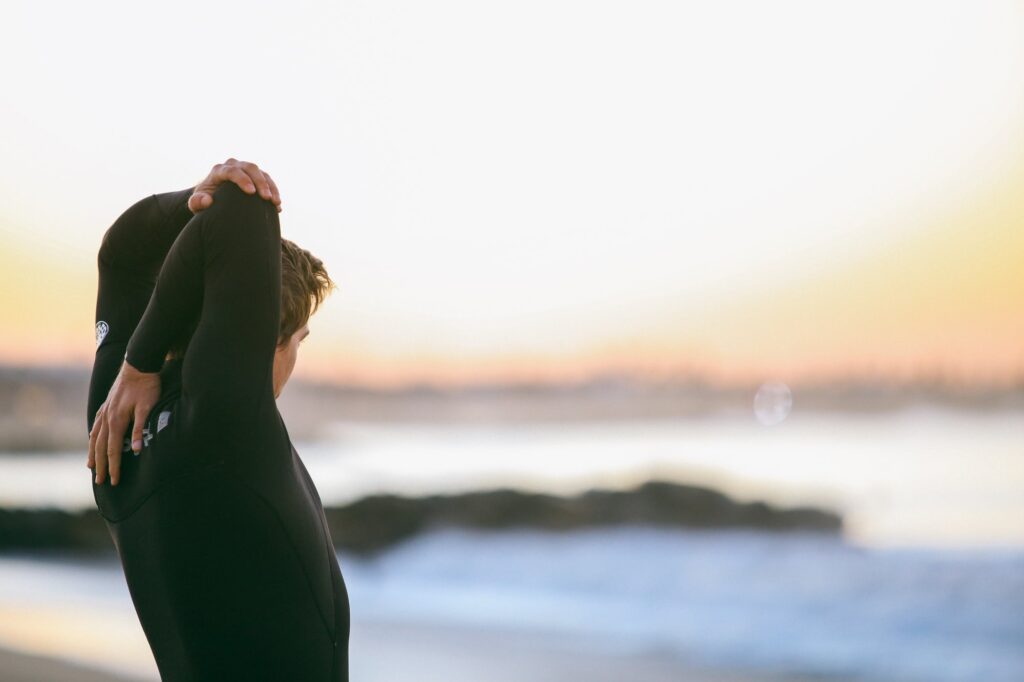How To Treat Shoulder Popping When Surfing
If you’re an avid surfer, chances are you’ve experienced the dreaded “popping” sound in your shoulder while relaxingly surfing.
This is a common problem among surfers that can be extremely painful and frustrating and can really put a damper on your surfing sessions.
Whether you’re just starting out or you’re an experienced pro, shoulder popping can happen to anyone.
Don’t worry though, there’s hope – there are ways to treat and prevent shoulder popping while surfing.
Today we’ll explore some of the most effective treatments and strategies for dealing with this pesky injury.
So if you’re tired of dealing with shoulder popping and want to get back to tearing up the waves, keep reading to learn more about what this condition is and how to fix it.
Human Shoulder’s Anatomy
Our shoulders are an intricate and unique composition of bones, tendons, muscles, and ligaments that give us the ability to move our arms with tremendous flexibility.
At its core lies three main bones: the clavicle (collarbone), scapula (shoulder blade), and humerus (upper arm bone).
Without this careful construction, we wouldn’t be able to enjoy all those activities requiring arm movement – from a simple wave goodbye or taking off on a street workout in town.
Tendons connect the muscles to the bones and ligaments providing strength and stability. When all of these parts are working together correctly, our shoulders can move with ease and help us perform everyday activities like surfing.
However, when something goes wrong in this system, it can cause instability or even pain. This is what happens when you experience shoulder popping while surfing.
The shoulder is prone to injuries due to its high level of mobility and the fact that it is not as well-supported as other joints in the body.
This makes it vulnerable to sprains, strains, and dislocations, especially when it is subjected to repetitive or high-impact activities.
Surfing, with its combination of powerful waves, fast turns, and unexpected falls, is one such activity that can put a lot of stress on the shoulder and lead to injuries.
And there’s also a name for that – it is called “Surfer’s Shoulder” which is a condition of overusing our shoulder that results in impingement or rotator cuff type symptoms during or after a session.
What Is Surfer’s Shoulder Condition?
Surfers’ shoulder is a musculoskeletal condition that affects surfers of all ages. As mentioned, the shoulder is a complex and fragile joint and is regularly injured among surfers and swimmers.
Surfers and swimmers rely on their shoulders to propel them in the ocean, paddle around, and of course catch waves.
Unfortunately though, that puts these body parts at high risk for rotator cuff strain or multidirectional instability injuries.
Surfer’s shoulder is a condition caused by overuse of the rotator cuff muscle and the underlying tendon tissue, causing the tough yet thin rotator cuff to be overstretched or torn.
It results in pain in the front of your shoulder when you move your arms overhead or across your chest and this painful event can happen when a surfer gets crushed by an overwhelmingly large closeout wave or a terrible wipeout.
Nevertheless, typically it is due to the typical wear and tear caused by persistent paddling.
Surfers spend an average of half their time paddling, which translates to hundreds or even thousands of strokes each session, plus countless duck dives and take-offs.
Surfer’s Shoulder Symptoms
Of all the muscles in the rotator cuff, it is the supraspinatus muscle tendon, which is located in the rotator cuff region of your upper back, that is most vulnerable to injury.
As it passes through a small gap created between the acromioclavicular joint and humeral head, pressure can build up during activities such as arm-overhead movements like paddling a surfboard – when this bony space becomes most constricted.
When the supraspinatus tendon becomes impinged, inflammation and tendinitis are triggered. What follows is a vicious cycle in which the swollen tendon attempts to squeeze under the acromion, leading to further irritation and chafing with every passing moment.
If a surfer persists in pushing through the pain, the inflamed tendon will begin to unravel and eventually rupture, ultimately leading to a tear of the rotator cuff.
A rotator cuff injury is most often accompanied by a sharp pain in the shoulder that intensifies while moving your arm, as well as a limited range of motion.
What Does It Mean If Your Shoulder Keeps Popping?
If your shoulder keeps popping while you are surfing, it may be a sign that something is wrong with the joint. A popping sensation in your shoulder can indicate an injury or instability.
The clicking sound heard when a shoulder “pops” is typically due to the muscles and tendons surrounding it becoming tight and causing friction when you move your arm.
Usually, this indicates that an injury has occurred in one of the tendons or muscles in your shoulder.
If the popping sound is accompanied by pain or a decrease in strength and range of motion, it means that you should have your shoulder examined by a doctor as soon as possible.
How To Fix Shoulder Popping When Surfing
An effective way to avoid shoulder injury is to regularly stretch your shoulders – this will keep them strong and robust.
However, an even better treatment includes correcting muscle imbalances and stretching the anterior shoulder muscles.
You will need a thera-band program that focuses on strengthening your external rotator muscles as well as stabilization exercises.
With time and progress, you should move onto weight machines or free weights depending on your comfort level along with additional stretches to really target those areas of tension.
Surfers over the age of 40 should routinely engage in strength-building exercises to ensure peak performance and be vigilant about the difference between normal muscle fatigue and joint issues.
Individuals with a history of dislocation, discomfort, radiating pain down the arm/neck area or prior surgery should receive an evaluation from a sports medicine doctor.
Additionally, those who have experienced limitations in their range of motion may be candidates for further examination.
In addition, it would be wise to practice proper form both on land and in water. Make sure to maintain good posture while paddling out — shoulders should be back, head up, and eyes looking forward at all times.
Focus on using full arm strokes with each pull through the water, avoiding any jerky motions or short strokes as these can cause additional stress on your shoulders.
But the best treatment is prevention — exercise, strengthening, and stretching before and after surfing can help you stay injury free.
These three elements will improve and stabilize your shoulder, as well as improve flexibility and range of motion — ultimately helping to prevent any popping or pain in the future.
Conclusion
No one likes an injury getting between them and their beloved activity, and shoulder popping can be an indication of a more serious injury and should not be taken lightly.
So if you have been experiencing pain or popping sensations in your shoulder after going out for a session, it’s time to take action and address the root cause.
I hope you enjoyed reading about your shoulder anatomy and are relieved about getting to know The Surfer’s Shoulder condition.
With proper treatment consisting of strengthening exercises, you should be able to get back on your board without worrying about your shoulders being sore afterward in no time.



